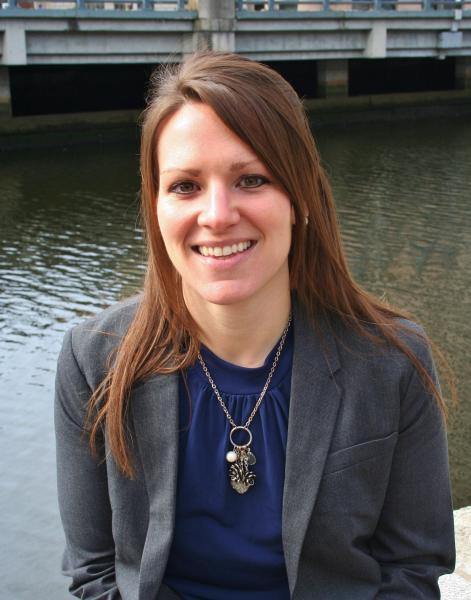American Psychological Association Division 50

Where do you work, and in what capacity?
I am a licensed clinical psychologist in the Department of Psychiatry at the University of Missouri. My current position is primarily (~90%) research, but also involves service and medical student (as opposed to traditional classroom) teaching. If anyone wants to talk about a psychiatry (vs. psychology) position, please reach out!
Where did you do your training?
I completed my undergraduate education at Westminster College, a small liberal arts school in Fulton, Missouri – about 25 miles from where I grew up. I took a year off after college to get more research experience and figure out if I liked clinical work, and then I went to Oklahoma State University to study clinical psychology with Thad Leffingwell. I completed my clinical internship at Brown University with Brian Borsari in 2015 and then two years of postdoctoral training at the Center for Alcohol and Addiction Studies with Kate Carey. I began my faculty position in July of 2017.
What are your research interests?
I am interested broadly in how and why people change their health behaviors – specifically, behaviors related to heavy drinking. The long-term goal of my research is to improve the effectiveness and efficiency of prevention and treatment among high-risk populations (e.g., young adults, Veterans), and I am especially interested in electronic interventions that can be widely disseminated to increase the reach of public health promotion and prevention efforts. Right now, my projects are testing the roles of sleep and alcohol-induced blackouts in alcohol use outcomes.
What are your clinical interests?
My favorite clinical experiences involve brief interventions. I love sitting down and having what feels like a casual conversation with someone about their substance use – and helping them explore what it’s doing (and not doing) for them. I think that’s part of the reason insomnia treatment was also appealing to me – it’s possible to make big changes in just a few collaborative sessions. On the flip side of that, I also love working on teams. Because sometimes (a lot of times), clinical work ISN’T that straightforward, and it’s nice to have a team of people helping you think outside the box.
How did you become interested in addictive behaviors?
Alcohol has been part of the social scene in my life for as long as I can remember – I grew up in a huge Catholic family, and alcohol (especially wine) was always around. But I think college is what really piqued my interest in alcohol because that was the first time I saw how devastating it could be – not just in terms of embarrassing moments, but also in terms of sexual assault and completely unintentional deleterious behaviors. I was also part of the DARE generation, so seeing that some people used illicit drugs WITHOUT having terrible consequences or “frying” their brain also made me curious about how addiction happens: Who has problems, and why? The whole “you lost the genetic lottery” explanation – where some people just won’t ever be able to drink because of their genetics – didn’t match what I saw in the real world. That made me want to learn more about the continuum of normal to problematic drinking and how we can prevent people’s substance use from derailing their lives.
What motivated you to join the Society on Addiction Psychology (Division 50)?
One of my friends on internship told me about this relatively small conference called Collaborative Perspectives on Addiction that emphasized professional development for trainees and early career psychologists. I didn’t have a lot of money at the time, but I applied for one of the travel awards, and they gave it to me, so I went. Not only was I able to meet a bunch of senior investigators who shared their experiences and offered advice, but everyone at the conference seemed genuinely committed to advancing substance use prevention/treatment and growing addictions research. I’m committed to those things, too – so I joined!
Any other information that you would like to share about yourself?
By far, the best decision I made in grad school was talking to our custodian – he worked nights in our building, and I ended up marrying him (and yes, he’s very good at math). I love hiking, especially in the woods and by waterfalls, and I like listening to other people’s stories. I miss having a cohort and being constantly surrounded by my friends, but now I have a ‘twonager’ and a three-month-old, and I adore my little new bosses.

Resources are available for those struggling with addiction and numerous effective treatments exist. Whether you are looking for help for yourself or a loved one, we encourage you to seek out help.